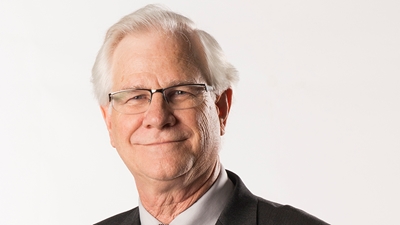Mind of Jacka: Not Quite a Manifesto
Blogs Mike Jacka, CIA, CPA, CPCU, CLU Sep 21, 2022

The profession of internal audit is an odd duck. We are part of the organization but must be separate enough to maintain objectivity. We work for the organization but really work for the board. We help identify how to make things better but have no authority to make them better. We can tell people what they should do but can't force them to do it. We must approach every project believing controls are effective but look for the proof they are not. The contradictions just keep rolling in.
The test of a first-rate intelligence is the ability to hold two opposing ideas in mind at the same time and still retain the ability to function.
-F. Scott Fitzgerald
I guess Mr. Fitzgerald would believe internal auditors have a first-rate intelligence. On the other hand, he might question how well some of us function with all those opposing ideas rattling around in our heads.
In fact, maybe the contradictions are part of the reason people have trouble performing within this profession. Maybe that is why the profession faces its own unique form of burnout. Maybe that is why some who stick with the profession lose their ability to be effective. Maybe that is why I see so many audit departments that, while they may be good, are not great. (Not that I haven't seen great and effective departments; I have. It's just I've seen a great many sitting on the cusp of mediocrity.)
As a group — as a profession — we must accept these contradictions. We must function with and accept the opposing ideas that are the foundations of our profession. Accordingly, we must constantly ensure we are appropriately grounded, focusing on concepts that are the foundations of our success. Mind you, we do a pretty good job when it comes to the technical — the policies and procedures and objective measures that help define the profession. But focusing on these areas is part of why we struggle. Hard and fast rules do not allow the latitude to adapt and move within our contradictions. Accordingly, we must ensure we are focusing on the subjective, in particular, the human element that creates true success.
What follows is an approach to that focus. It is not a list you'll see in any "official" documents — the IPPF, CBOK, briefs, bulletins, etc. Rather, these are the more intangible, human elements that allow us to function amid the contradictions that define our profession. To quote a fairly famous document, we hold these truths to be self-evident.
- We want to make things better.
- We want to make our departments better.
- We want to make our profession better.
- We want to make our organizations better.
- We want to make ourselves better, as well as those around us.
- We are partners with the organization and the people who work within that organization.
- No matter how much we are battled, beaten, and bruised, we still recognize that we are partners.
- We have our egos, and we succumb to them, push them aside, or use them to become better.
- Our clients have their egos, and we bow to them, fight them, or use them to understand how we can better work with those clients.
- We take an active role in the success of our organizations, not sitting back and letting events happen around and to us.
- We have a unique blend of skills, access, and opportunities.
- We grab our opportunities, allowing us to place ourselves into the consciousness of those with whom we work.
- We don't have all the answers.
- Sometimes we don't have many answers.
- Sometimes we don't have any answers. And there is nothing wrong with that.
- We are salespeople.
- We are selling ourselves.
- We are selling assurance.
- We are selling improvement and betterment.
- We are not selling a report.
- We know we can count on each other — as professionals, as businesspeople, and as human beings.
- And, ultimately, we are nothing more than people working with people to raise the bar in everything that is done.
Is this a long list? Yeah, kind of. Is it a mixed bag? Definitely. Do you need to keep all of them in mind? Well, your mileage may differ. Some may be more important, more relevant, and more crucial to your work. But dismiss none of them; they all have merit. Further, I'd suggest you think about what might be added.
Finally, is this a manifesto? Sure, why not? (Other than the fact that the title of this piece says it isn't.) Call it a manifesto, call it a mission, call it a pedigree, call it Fred Derf, call it late for supper, call it anything you like. But understand that these are the types of foundational concepts we must come to grips with, to accept and build on. We must embrace the human to be able to handle the complicated contradictions that make our profession what it is — something different, something special, and something imminently necessary.


